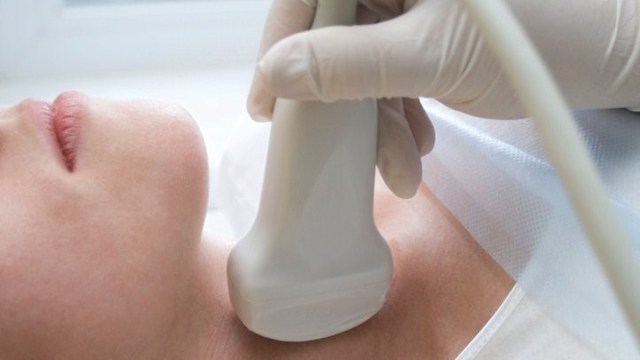When a person suffers from a thyroid disease, there can be a number of symptoms. Problems become apparent when the thyroid gland produces too much or too little thyroid hormones, or when cancer is present.
Since signs slowly appear over time, diagnosis for thyroid disease can come after symptoms start. Symptoms can include weakness or fatigue, fast heart rate, weight loss or weight gain, extreme anxiety, change in menstrual behavior, dry skin and hair, and depression.
The necessary treatment or medication will depend on the type of thyroid disease. As a result, many persons
can resume a fairly normal life with treatment. Realistically, some patients will continue to deal with bouts of fatigue, and for an individual who is normally very active and independent, this fact can be very sobering.
What can a person do to cope with the change in lifestyle that thyroid disease may present? What about persons who have braved thyroid cancer diagnosis and treatment successfully? How do these persons start to regain their emotional health back?
Dealing with this situation can be stressful. One thing we all know is that we can’t change or control outside forces. Therefore, the goal is to manage emotions in a healthy way. Under normal circumstances, when stress increases, the hypothalamus (a small area at the base of the brain), kicks your body into response mode. After a mix of nerve and hormonal signals fire, your adrenal glands release the adrenaline and cortisol hormones.
Adrenaline gives you a charge of energy while elevating the blood pressure and heart rate. The hormone cortisol (which is the main stress hormone), increases blood sugars, prepares the brain for this increase and makes ready the substances that repair bodily tissues. All of this can happen in a matter of seconds. Afterwards, the body usually does a good job of restoring stress levels to normal. But sometimes, as when individuals are dealing with long-term illnesses, stress levels continue to be “on alarm.” This state can exhaust the body, leading to more health problems.
Managing emotional health means taking care of you - physically and emotionally. Below are tips:
Physical Needs
-Make sure you are taking your thyroid medicines as directed.
-Know when your body is indicating signs of too much or not enough thyroid hormones.
-Do not hesitate to get regular exams for thyroid hormone levels, changes, or suspected nodules.
-Be aware of other medications that block thyroid medications.
Emotional Needs
-Get regular exercise.
-Try relaxation techniques.
-Maintain good friendships and support.
-Get adequate amounts of sleep.
-Get professional counseling when and if needed.
Provided below are a list of organizations that provide support groups for those with thyroid disease:
American Thyroid Association
www.thryoid.org
Graves’ Disease Foundation
www.ngdf.org
Light of Life Foundation
www.checkyourneck.com
THYCA: Thyroid Cancer Survivor’s Association, Inc.
www.thyca.org
Resources: Mayo Clinic, American Thyroid Association, The Hormone Foundation
Dita Faulkner is a freelance writer who campaign’s for safe homes and united families for the State of Tennessee.
Please preview her poetry at:
http://www.lulu.com/product/paperback/red-toenails/6181258?productTrackingContext=center_search_results






Add a CommentComments
There are no comments yet. Be the first one and get the conversation started!